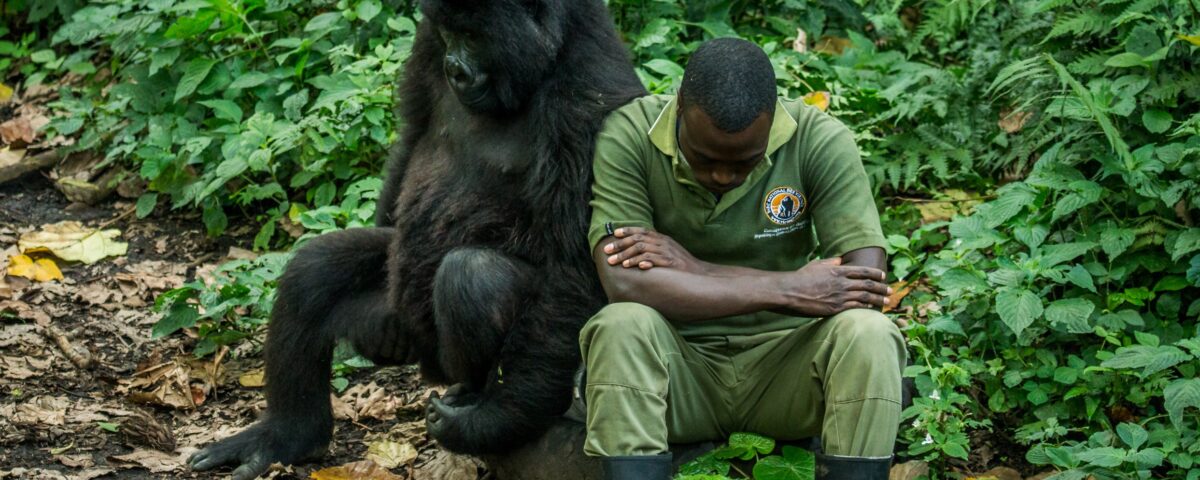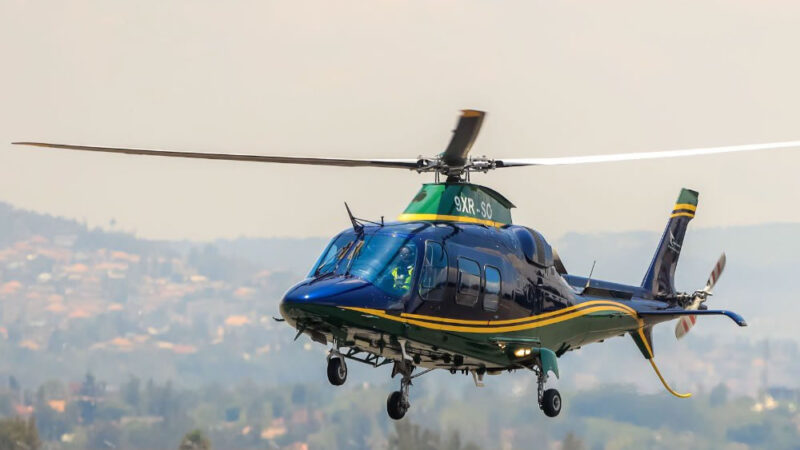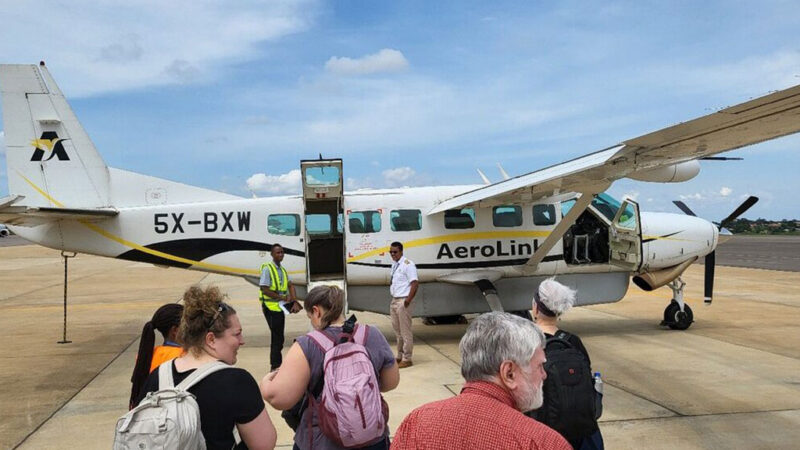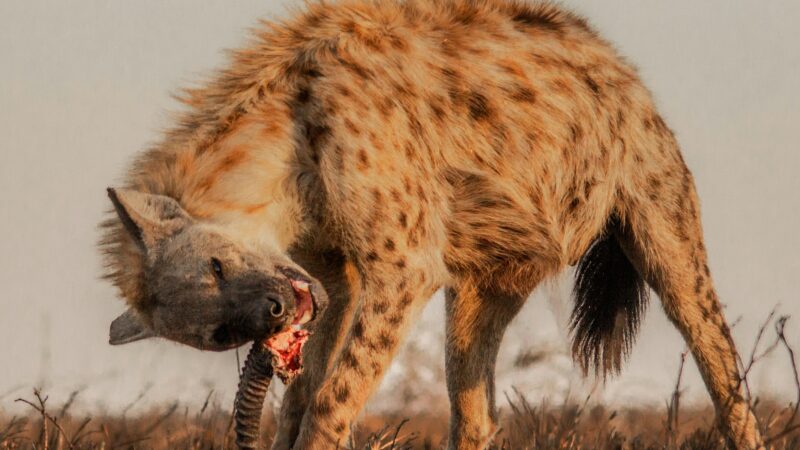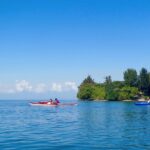
Rwanda’s Secret Lakes, Volcanoes, and Savannah Parks
May 6, 2025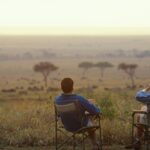
Digital Detox Destinations in East Africa
May 7, 2025Eco-Warriors of the Wild: The People Protecting East Africa’s Wildlife
In East Africa’s iconic landscapes—sprawling savannahs, misty volcanoes, and ancient forests—some of the most important Eco-Warriors of the Wild, work quietly behind the scenes. These are the guides, rangers, and wildlife trackers who make every safari possible and who protect the region’s wildlife every single day. Their roles are not just jobs; they are missions of passion, education, and conservation.
This article celebrates these incredible individuals—the eco-warriors of the wild—and shares their inspiring stories.
Meet the Safari Guides: Experts, Storytellers, and Local Heroes
Guides are often the first people you meet on a safari—and they’re unforgettable. Take Paul Mwakima, a veteran guide from Kenya’s Tsavo region. Paul doesn’t just help you spot elephants; he explains how they shape ecosystems, find water in dry seasons, and interact with other animals. He turns your safari into a deeper connection with the wild.
Then there’s Christine Uwase, a trailblazing female guide in Rwanda’s Volcanoes National Park. Christine leads gorilla treks and cultural tours, blending wildlife education with the traditions of her people. Her confidence and knowledge inspire many young women to follow in her footsteps.
Safari guides are much more than drivers or animal spotters. They are naturalists, interpreters, and cultural ambassadors. They make sure every moment in the wild is safe, meaningful, and respectful to nature.
Their training is intensive, covering everything from wildlife biology to first aid. But what truly sets them apart is their local knowledge and love for the land. Many come from nearby communities, and their work supports families, schools, and conservation.

Guides like Paul and Christine show us that a safari isn’t just about seeing animals—it’s about understanding them, respecting them, and walking away transformed.
Park Rangers: The Brave Defenders of East Africa’s National Parks
Every day, John Lumu, a park ranger in Uganda’s Murchison Falls National Park, wakes up before dawn and begins a patrol through thick bushland. Armed with only the basics, he’s protecting elephants, lions, and rhinos from poachers and illegal activity. It’s a dangerous job—but he does it with pride.
In Tanzania’s Serengeti, Fatuma Mgumba is helping lead the way as one of the park’s first female rangers. She monitors wildlife, helps reduce human-animal conflict, and educates communities about the value of preserving nature.
Park rangers are the frontline heroes of conservation. They track wildlife, respond to emergencies, gather data for scientists, and work with local communities to build peace between people and animals. They often patrol remote and risky areas, facing everything from armed poachers to wild animal encounters.
Thanks to rangers, parks like Akagera in Rwanda have seen a return of the Big Five—lion, leopard, rhino, elephant, and buffalo. Rangers helped reintroduce these species, monitored their growth, and protected them from harm.
Despite limited resources and tough working conditions, these men and women never give up. Their courage keeps endangered animals alive and keeps national parks safe for both wildlife and visitors.

Their efforts are not always seen—but they are felt in every sighting of a healthy elephant herd, every peaceful trek through a rainforest, and every child who grows up learning to protect instead of poach.
The Wildlife Trackers: Masters of Animal Signs and Movements
Wildlife trackers have a rare gift. They read the land the way others read a map. A broken branch, a fresh footprint, or a distant sound tells them where an animal has gone, what mood it’s in, and how long it’s been there.
Samuel Ndung’u, a tracker in Kenya’s Loita Hills, learned from his grandfather how to follow animals without disturbing them. He can recognize individual lions by their prints and knows when a cheetah is hunting based on bird calls nearby.
In Rwanda’s Volcanoes National Park, Jean-Pierre Habimana starts his day before sunrise, heading into the misty mountains to locate gorilla families. He works closely with the same groups daily, watching their habits and ensuring their safety. Thanks to his skill, tourists can experience gorilla treks without causing stress to the animals.
Trackers work quietly but have a huge impact. They help guides deliver unforgettable safaris, keep visitors safe, and ensure animals are treated with care. Their skills come from years of training, intuition, and living close to nature.
Their role is essential to conservation and ecotourism. Without them, much of the magic of a safari wouldn’t be possible.
Why Their Work Matters: Saving Nature and Changing Lives
How Safari Staff Support Conservation and Communities
The work of guides, rangers, and trackers goes far beyond just the animals. They help entire ecosystems and communities thrive. Their jobs support schools, health clinics, and clean water projects in rural areas where tourism brings needed income.
These eco-warriors also help scientists monitor wildlife populations, study migration routes, and understand climate impacts. They play a critical role in gathering data used by conservation organizations worldwide.
More women and young people are now entering these careers, changing stereotypes and bringing fresh perspectives to conservation. In some regions, rangers are now over 30% female, breaking barriers and creating stronger communities.
Perhaps most importantly, local involvement builds ownership. When communities see their neighbors protecting wildlife and benefiting from tourism, they are more likely to stop illegal activities like poaching or logging.
These professionals show us that protecting nature and empowering people go hand in hand.
How You Can Help: Travel That Makes a Difference
Support the People Behind Your Safari
When you book a safari with Traford Safaris Ltd, you’re supporting more than just a trip. You’re backing the local experts who make your experience unforgettable—and helping keep East Africa’s wild places alive for future generations.
We work directly with local guides and ranger programs, and we give back to the communities we visit. Whether you’re spotting elephants in Amboseli, trekking gorillas in Rwanda, or birdwatching in Uganda, your journey supports ethical travel and conservation.
You can also:
-
Donate to ranger support initiatives
-
Visit local community projects during your safari
-
Choose eco-friendly lodges and tour providers like Traford Safaris
-
Start Your Meaningful Safari with Traford Safaris Ltd
Explore with purpose. Learn from the people who protect the wild. And leave East Africa better than you found it.
📧 Contact us to plan your eco-conscious safari today.

